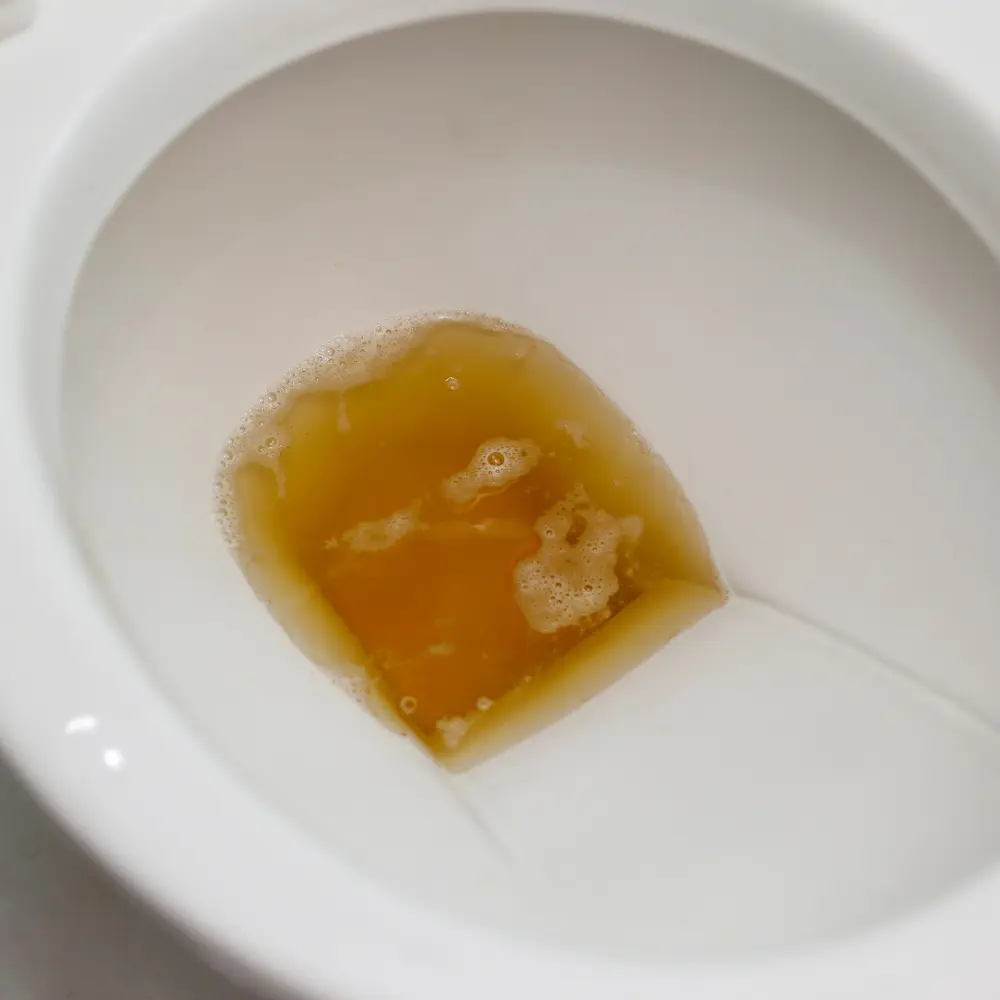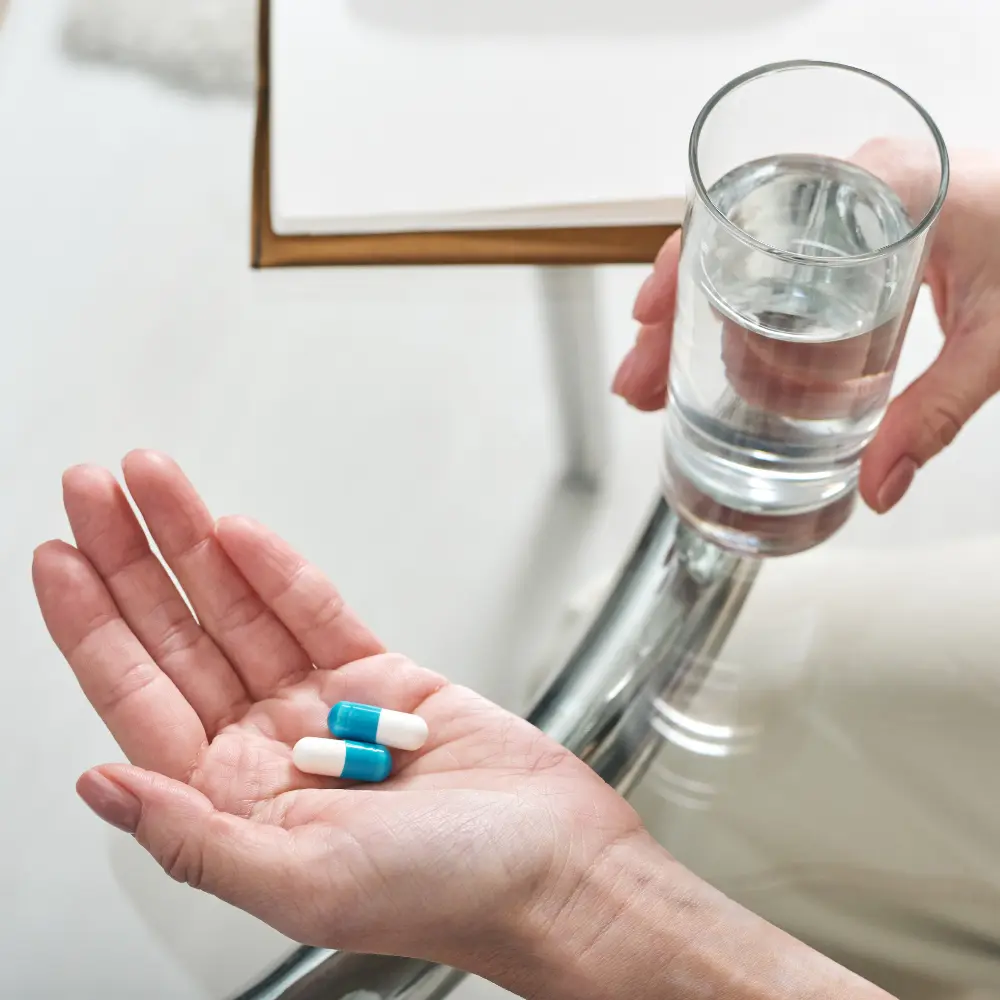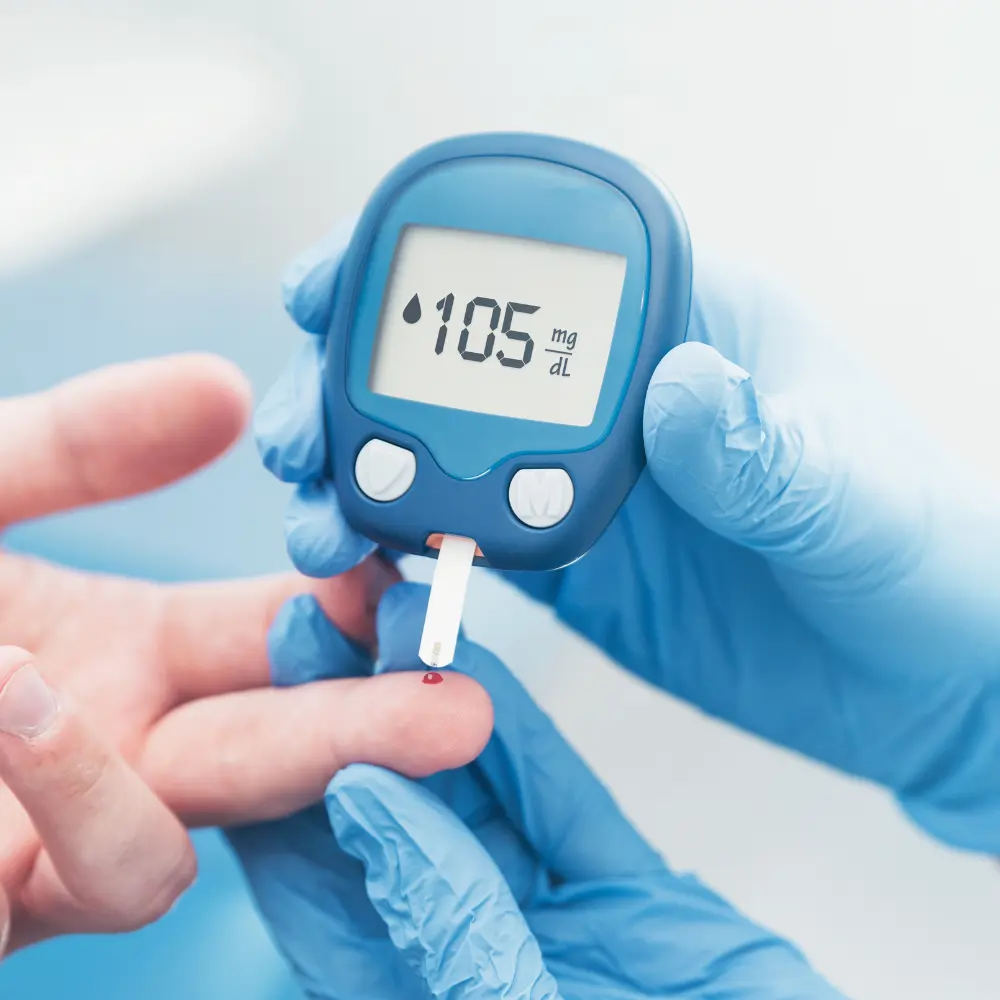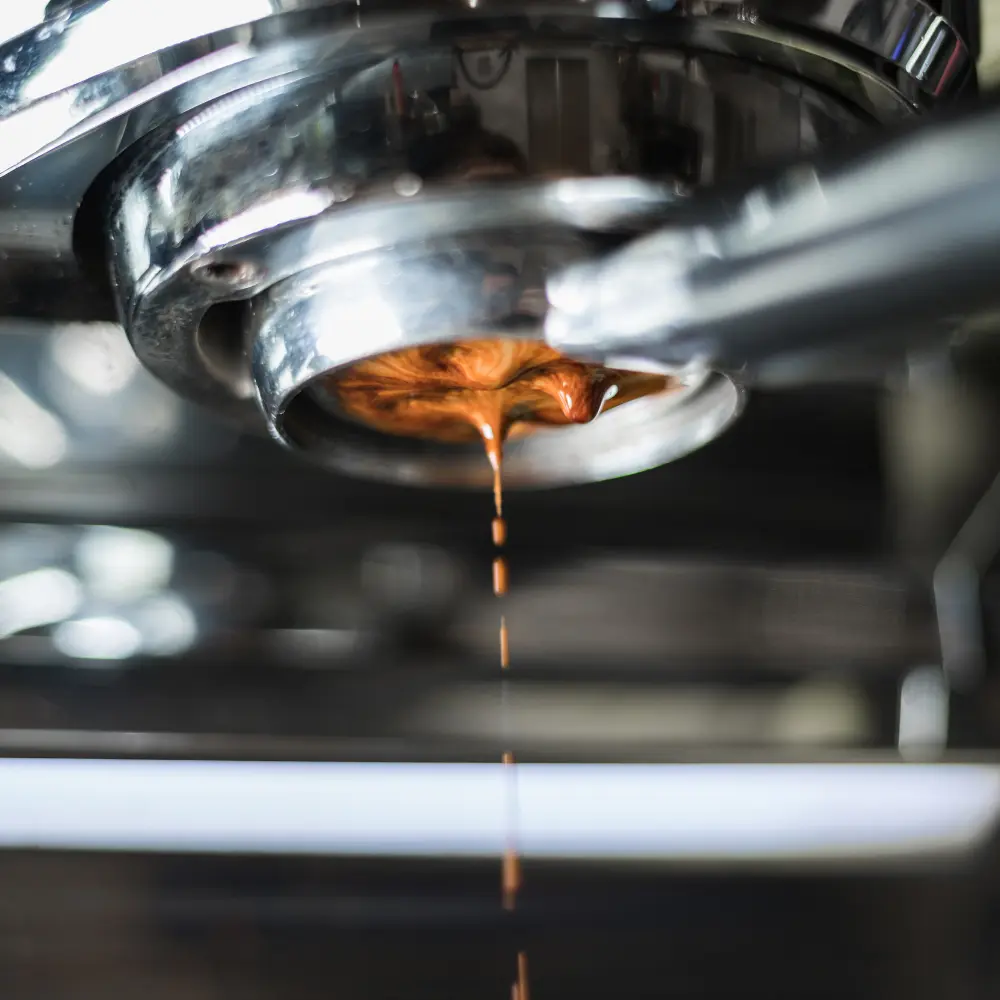A noticeable change in the aroma of one’s bodily fluids can sometimes provoke a sense of curiosity, bewilderment, or even concern. Among these changes, one phenomenon that has been known to cause raised eyebrows is when your urine smells like coffee. So, why does my urine smell like coffee? You may ask. This question, though initially peculiar, can reveal interesting facets about our bodies and dietary habits. It’s essential to acknowledge that the aroma emanating from your urine can be indicative of various conditions, from simple dietary changes to more complicated medical conditions. This article will delve into the causes and symptoms related to the occurrence of coffee-like urine smell, as well as provide an overview of the potential treatment options to manage this unique situation. Armed with this knowledge, you’ll be better prepared to understand what your body might be signaling to you.
Urine Smells Like Coffee: Key Takeaway
- Understand the Causes: Urine smelling like coffee can result from various factors such as dehydration, high coffee consumption, and certain medications or supplements. In some cases, it may indicate an underlying health condition like urinary tract infections, liver and kidney disorders, or metabolic conditions such as diabetes.
- Monitor Associated Symptoms: Apart from the coffee-like smell, other symptoms such as changes in urine color and consistency, increased frequency or urgency of urination, and experiencing pain or a burning sensation during urination could provide crucial clues to identifying potential health issues.
- Seek Diagnosis: If you notice persistent changes in your urine’s odor, it’s important to seek medical evaluation. A comprehensive medical evaluation involving a detailed discussion about your symptoms, dietary habits, and general health, followed by diagnostic tests like urinalysis, blood tests, or imaging tests, can help identify the cause.
- Explore Treatment Options: The treatment options vary significantly based on the underlying cause. They could range from simple lifestyle changes and home remedies to prescription medications and therapies. Regular consultation with a healthcare provider ensures the most effective treatment plan.
- Act on Alarming Signs: Persistent or recurring coffee-like smell, blood in urine, severe abdominal pain, fever or chills, unintended weight loss, nausea, or vomiting are alarming signs that warrant immediate medical attention. Prompt response to these signs can help prevent complications and ensure optimal health.
Understanding the Causes of Coffee-Scented Urine
Urine’s odor can significantly vary depending on numerous factors, including our hydration levels, diet, and any medication or supplements we may be taking. In certain scenarios, one might notice that their urine smells like coffee. Let’s explore the potential reasons behind this uncommon occurrence.
Dehydration as a Potential Cause

Dehydration is one of the most common factors that can alter the scent of your urine. When you don’t consume an adequate amount of fluids, your body tries to conserve water, leading to urine that is more concentrated. This concentration can not only darken the color of your urine, turning it to a deep yellow or amber, but it can also strengthen the smell. While this intensified odor might not specifically resemble coffee, it can often be mistaken as such due to its robustness. (1)
Coffee Consumption and Urine Odor
One of the most straightforward explanations for why urine smells like coffee is consuming large amounts of this popular beverage. Coffee, especially in higher quantities, can influence the scent of your urine due to the presence of compounds like caffeine and other organic substances. These substances are broken down in the liver and excreted through urine, causing it to adopt a coffee-like odor. It’s crucial to note that individuals metabolize coffee differently, and thus, not everyone will experience this change in urine odor after coffee consumption. (2)
The Impact of Medications and Supplements on Urine Odor

The consumption of certain medications and dietary supplements can significantly influence your urine’s smell, due to the metabolites these substances produce when processed by your body. From antibiotics to vitamins, and drugs meant for urinary tract infections, these can all cause discernible changes in both the color and scent of your urine.
- Antibiotics: Some antibiotics can alter the smell of urine. This change is usually due to how the medication is broken down in the body, resulting in certain byproducts being expelled through urine.
- Vitamins: Certain vitamins, particularly B vitamins like B6, can lead to a strong, often unpleasant odor in urine due to their high concentration and the body’s method of excreting excess amounts.
- Urinary Tract Infection Medications: Drugs like Phenazopyridine, used for relieving symptoms of urinary tract infections, can alter the smell and color of urine.
- Diabetes Medications: Certain medications used to control blood sugar in diabetes, such as metformin, can cause a change in urine odor.
If you notice a persistent change in the smell of your urine after starting a new medication or supplement, it’s crucial to bring this to your healthcare provider’s attention. This is to ensure that the altered urine odor isn’t a sign of a serious side effect or interaction that might need medical intervention.
Foods that Can Alter Your Urine Odor

Just as some foods can impact the color of your urine, they can also influence its odor. Certain foods contain compounds that are expelled through your urine, which can lead to a change in its smell. Let’s take a look at some foods known to cause such changes:
- Asparagus: This vegetable is notorious for its impact on urine smell. It contains a compound called asparagusic acid, which breaks down into sulfur compounds when digested, resulting in a distinct, somewhat unpleasant smell in urine.
- Garlic and Onions: Both garlic and onions are rich in sulfur-containing compounds. When these are broken down in the body, they can lead to strong-smelling urine.
- Fish: Certain types of fish like tuna and salmon contain a compound called trimethylamine, which can cause your urine to smell fishy. People with a condition called trimethylaminuria have a reduced ability to break down this compound, leading to a strong body and urine odor.
- Alcohol and Coffee: Both substances are diuretics, which means they increase urine production. They can also cause urine to smell differently, with alcohol leading to a more pungent smell and coffee sometimes making urine smell similar to it.
- Certain Spices: Spices such as cumin and curry can change the smell of your urine as well. The aromatic compounds that give these spices their characteristic scents are expelled through urine, leading to an unusual smell.
- Cruciferous Vegetables: These include broccoli, Brussels sprouts, cabbage, and cauliflower. They contain sulfur compounds which can result in a strong odor in your urine.
It’s important to note that experiencing a change in urine smell after consuming these foods is quite normal and usually nothing to worry about. However, if you notice persistent changes in your urine’s odor that don’t seem linked to food consumption, it may be a good idea to consult a healthcare provider.
Associated Symptoms of Urine Smelling Like Coffee
Apart from the peculiar odor, there may be other symptoms accompanying the situation when urine smells like coffee. These symptoms can be a key to understanding the underlying cause and determining whether medical attention is necessary. Let’s delve into these associated symptoms.
Changes in Urine Color and Consistency

A change in the odor of your urine may often be accompanied by alterations in its color and consistency. The color can vary from light yellow to a darker amber shade, or even have a slightly green or blue tinge in rare cases due to certain medications. Dehydration, as mentioned earlier, can lead to dark, concentrated urine. Alternatively, if your urine appears cloudy or foamy, it could indicate an infection, kidney issues, or the presence of certain metabolic disorders.
Frequency and Urgency of Urination

Another symptom that might occur concurrently with your urine smelling like coffee is changes in the frequency or urgency of urination. You might find yourself needing to urinate more often than usual, a condition known as polyuria. On the other hand, a sudden or urgent need to urinate can be a sign of a urinary tract infection or an overactive bladder.
Burning Sensation or Pain
Pain or a burning sensation during urination should never be ignored. While it can happen due to common and treatable issues such as urinary tract infections (UTIs), it could also indicate more serious conditions like bladder or kidney stones, sexually transmitted infections (STIs), or in rare cases, bladder cancer. When accompanied by the peculiar coffee-like smell in your urine, this could mean that these health conditions are affecting your body’s metabolic processes, leading to an unusual odor during urination.
Remember, the presence of these symptoms doesn’t always indicate a severe health problem. Still, it’s important to pay attention to your body and consult with a healthcare provider to rule out any potential issues, especially if the symptoms persist or cause significant discomfort.
Medical Conditions and Coffee-Like Urine Odor
The peculiar phenomenon where urine smells like coffee can, at times, be indicative of underlying health conditions. From urinary tract infections to liver and kidney disorders to metabolic conditions like diabetes, let’s explore how these medical situations can contribute to this unusual urine odor.
Urinary Tract Infections (UTIs)

Urinary Tract Infections are common ailments that can significantly affect the odor and color of urine. UTIs occur when bacteria enter the urinary tract, leading to an infection in the bladder, urethra, or, in more severe cases, the kidneys. This infection can cause urine to have a strong, foul, or unusual smell, which some people might associate with coffee. Accompanying symptoms often include a burning sensation during urination, lower abdominal pain, and cloudy urine.
Liver and Kidney Disorders

Liver and kidney disorders are another potential reason behind the musty smell of urine. Both organs play a critical role in metabolizing substances and eliminating waste from the body. Any disruption in their function can result in an accumulation of waste substances, subsequently affecting the color, consistency, and smell of urine. Certain liver conditions like cirrhosis and hepatitis, or kidney diseases like kidney stones or chronic kidney disease, could potentially cause urine to give off a pungent odor.
Diabetes and Metabolic Conditions

Diabetes is a metabolic disorder that, when poorly controlled, could contribute to a change in urine odor. High blood sugar levels can cause sweet or fruity-smelling urine, but in certain cases, people might describe it as a coffee-like smell. Other metabolic conditions, such as phenylketonuria or maple syrup urine disease, can also alter the smell of urine. However, these are rare genetic disorders and are typically diagnosed early in life.
Recognizing the link between these medical conditions and the unusual coffee-like smell in urine can lead to a better understanding of your health. Always consult with a healthcare provider if you experience persistent changes in your urine’s odor, especially if it’s accompanied by other concerning symptoms.
Diagnosis and Treatment Options
If you notice your urine giving off an unusual coffee-like smell persistently, it might be time to seek medical evaluation. The course of treatment usually depends on the underlying cause. Let’s examine the process of diagnosis and potential treatment options.
Medical Evaluation and Diagnostic Tests

The first step in identifying the cause behind the peculiar smell in your urine is a thorough medical evaluation. This evaluation typically involves a detailed discussion about your symptoms, dietary habits, medication use, and general health status. It’s important to provide accurate information to help your healthcare provider make an informed diagnosis.
Following the discussion, diagnostic tests may be recommended, including:
- Urinalysis: A simple urine test can provide a wealth of information about your health, including signs of infection, kidney disease, diabetes, or other metabolic conditions.
- Blood tests: These can be useful in diagnosing liver or kidney disorders and checking for high glucose levels in cases of suspected diabetes.
- Imaging tests: If the symptoms suggest a more serious condition like kidney stones or bladder issues, your healthcare provider might recommend an ultrasound, CT, or MRI scans.
Lifestyle Changes and Home Remedies

In many cases, making certain lifestyle changes or trying home remedies might help manage the issue. If your urine smells like coffee due to excessive coffee intake or dehydration, consider the following steps:
- Hydration: Ensure you’re drinking enough fluids throughout the day. This can help dilute the urine, potentially reducing its strong odor.
- Dietary modifications: If the change in urine smell coincides with consuming a lot of coffee, try cutting back or alternating with other beverages.
Medications and Therapies

If an underlying medical condition is causing the unusual urine smell, treatment will focus on addressing that specific condition:
- Antibiotics: If a urinary tract infection is detected, antibiotics will be prescribed to clear the infection.
- Diabetes management: In cases of diabetes, controlling blood sugar levels is crucial, which might involve insulin therapy or other medications.
- Treatment for liver or kidney disorders: Depending on the specific condition, various treatments might be recommended, from medication to dialysis or even surgical interventions in severe cases.
While an unusual smell in your urine might not necessarily indicate a serious health problem, it’s essential to monitor your symptoms and consult with a healthcare provider if they persist. With the right diagnosis and treatment plan, you can effectively manage this symptom and ensure optimal urinary health.
When to Seek Medical Attention
While an unusual odor, such as when your urine smells like coffee, may not necessarily be cause for alarm, there are certain situations where it’s vital to seek medical attention. This is particularly true if the symptom persists, recurs, or is accompanied by other concerning signs.
Persistent or Recurring Symptoms

If the coffee-like smell in your urine persists for an extended period or keeps recurring even after lifestyle modifications like reducing coffee intake and staying well-hydrated, it’s time to consult a healthcare professional. Persistent or recurring symptoms can indicate an underlying health issue, which should be diagnosed and treated promptly to prevent complications.
Blood in Urine

The presence of blood in your urine, a condition known as hematuria, is a symptom that warrants immediate medical attention. It could be indicative of various health conditions, from urinary tract infections and kidney stones to more serious ailments like kidney diseases or bladder cancer. If you notice your urine is pink, red, or brownish, or if there are visible clots or particles, you should promptly seek medical help.
Other Alarming Signs

There are other alarming signs that, when coupled with a coffee-like urine smell, should prompt you to seek medical advice. These include:
- Severe or persistent abdominal pain: This can be a sign of a urinary tract infection, kidney stones, or other kidney diseases.
- Fever or chills: These symptoms, along with changes in urine smell or color, could indicate an infection.
- Unintended weight loss, nausea, or vomiting: These could be symptoms of more serious conditions such as liver disease or certain types of cancer.
Remember, while changes in urine smell might seem insignificant, they could sometimes be a signal from your body about an underlying health issue. When in doubt, it’s always best to consult a healthcare provider.
Conclusion
Understanding the peculiar phenomenon where your urine smells like coffee is essential in navigating potential health concerns. This peculiar odor can be a result of simple factors like dehydration or increased coffee consumption, but it can also indicate more complex conditions like urinary tract infections, liver and kidney disorders, or even metabolic conditions such as diabetes. Accompanying symptoms such as changes in urine color, frequency, or burning sensations can provide further clues to the underlying cause.
Diagnosis and treatment options vary significantly based on the root cause and can range from lifestyle changes and home remedies to prescription medications and therapies for serious conditions. Maintaining a keen sense of self-awareness, it is imperative to heed the signals your body sends and seek guidance from a healthcare professional should the persistent presence of a coffee-like odor in your urine be coupled with any worrisome accompanying symptoms. After all, taking care of your health is a continuous journey, and the more aware you are of your body’s signals, the better you can navigate this journey. With the knowledge you’ve gained from this article, you’re now better equipped to understand and respond to the unique situation where your urine smells like coffee.
FAQ
Is coffee consumption related to urine odor?
Yes, excessive coffee consumption can cause urine to have a coffee-like smell due to the excretion of certain compounds present in coffee.
What medical conditions can cause coffee-scented urine?
Conditions like urinary tract infections, liver and kidney disorders, or metabolic conditions such as diabetes can cause urine to have a coffee-like smell.
What diagnostic tests are used to identify the cause?
A medical evaluation might involve a urinalysis, blood tests, and possibly imaging tests to identify the cause of coffee-scented urine.
When should I consult a healthcare professional for urine odor?
You should consult a healthcare professional if the coffee-like smell in your urine persists, recurs, or is accompanied by other alarming symptoms like blood in the urine or severe abdominal pain.













